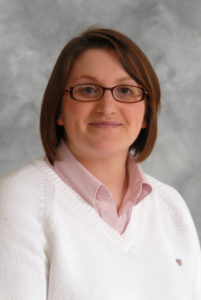Dr Joanne Reid, Reader in Cancer Nursing, School of Nursing and Midwifery, Queens University Belfast.
Research Collaboration in Northern Ireland between Queen’s University, ‘Every Day Harmony’ and Marie Curie Hospice Belfast, funded by the Public Health Agency, Northern Ireland.
Despite recent advances in medicine, patients with advanced illness continue to report high rates of suffering due to psychoexistential concerns such as loss of function, meaninglessness and anxieties in relation to death and dying. Palliative care recognises the ‘total pain’ experienced by end-of-life patients and supports the use of adjunct complementary therapies to address aspects of patient suffering still outside the remit of medical science and technology.
Music therapy is frequently used as a palliative therapy and entails the use of music to achieve individual goals in the context of a therapeutic relationship with a professional music therapist. Aligning with the goals of palliative care, the primary aim of music therapy is to improve people’s quality of life by relieving physical and psychological symptoms, facilitating communication and alleviating spiritual or existential concerns.
However, there are currently no guidelines in place for the use of music therapy in palliative care. This highlights the need for a stronger evidence base that demonstrates both the benefits and risks to help inform future music therapy provision. To date, primarily because of a lack of robust research, the evidence for music therapy’s effectiveness on patient reported outcomes is positive but weak. Music therapy is an allied health profession and can help a wide range of people affected by illness and disability. It uses musical interaction, and creativity through music, to address a patient’s clinical needs – whether they are psychological, physical, emotional, cognitive or social.
The core of music therapy is the relationship between the music therapist and the client. The client can either actively play instruments alone or with the music therapist, sing, or listen as they play. If the patient’s family is present, they may also be involved in the music therapy session. Patients can play to music already known to them, or play spontaneously and the therapist uses their musical skills to support them in this form of expression. Music therapy can also involve legacy work where the music therapist supports the patient to write a song for their family. In music therapy, our musical tastes and song choices can reveal the ‘person’ behind the terminal illness, helping patients reminisce about happier times, have fun in the moment, and leave a legacy for the future. As Shakespeare simply put it “When words fail, music speaks”
We are currently managing a study which is open for recruitment and running at Marie Curie Hospice Belfast with Music therapy provided by the Belfast based company Ever Day Harmony. A full study protocol is published elsewhere (DOI: 10.1186/s40814-016-0111-x ). The aim of the study is to determine the benefits of music therapy to people at the end of their lives. Fifty-two patients at the hospice are taking part. Half will receive six music therapy sessions over three weeks, as well as standard palliative care. The other half will receive standard palliative care (although they will also be offered up to two sessions of music therapy once the research period has finished). We will also collect data from HCPs and carers to understand their views on the impact of music therapy for patients. This is a feasibility study, with a view to undertaking a larger multi-site trial across the UK to evaluate the effectiveness of music therapy in improving the quality of life of palliative care patients.
Everyone has their own unique taste in music. It’s part of who we are. There’s been such a wide range of suggestions in the hospice so far: from classical music, such as Chopin, to traditional Irish music, to pop music. The music therapist delivering the intervention made a recent comment: I’ve learned so much from my clients. Everyone has so much to give, right up until the end, and it’s a privilege to be able to work with them at such an important time.”
